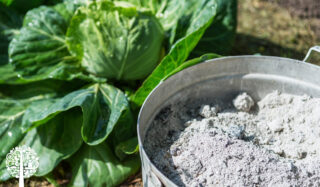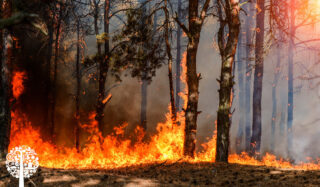No matter where you live, there is a good chance that you’ve experienced the effects of wildfire smoke. As the frequency and intensity of wildfires increase, so does the amount of smoke they generate. Carried by air currents, communities thousands of miles from the fire’s epicenter experience grey skies and ash falling like snow, coating everything with a fine powder, including the garden.
But There’s Good News
A study by the American Geophysical Union, published in the Journal of Biological Research, finds that smoke and ash are not all bad for plants. Researchers say that filtered sunlight caused by smoky skies makes plants more efficient.
The study looks at various plants and crops living under smoke-filled skies. The amount of sunlight available was lessened by only 4%.
The smoke has a scattering effect, allowing the sun’s energy and light to diffuse and penetrate more deeply into the plant canopies. As a result, the light reaches the entire plant, not just the topmost leaves, and helps plants photosynthesize better.
What About The Falling Ash?

Falling ash covers the plant, smothering its ability to absorb light and grow. Wildfire ash results from burnt trees, which creates wood ash that many gardeners are already using to create nutrient-rich soil.
As long as the blanket of ash is not thick, it will help plants by providing nutrients such as potassium, phosphorous, calcium, and trace minerals.
Everything In Moderation
Researchers at the University of California’s Berkeley Botanical Garden discovered that too much smoke and ash does indeed smother the garden, obstructing the movement of carbon dioxide that the plant leaves need to “inhale” as part of photosynthesis.
A lack of CO2 for plants leads to water loss, creating the same impact as a severe drought. Thick smoke will also destroy chlorophyll, the pigment that makes plants green and enables nutrient absorption. When dense smoke blankets swaths of agricultural fields for weeks, crops grow smaller and ripen later.

However, even in this scenario, there is a silver lining. Plants will survive, albeit their natural cycles will become disrupted.
Perennials may be tricked into dormancy, thinking that winter has come. Others will stop growing to wait it out, and when the smoke clears, they will resume their natural cycles, blooming later and producing smaller yields.
Positive Action
If ash from forest fires becomes a problem in your region, wear your N95 pandemic mask in the garden to protect yourself from breathing in the smoke. Water and mist your plants to ensure the foliage isn’t caked with falling ash.
When it comes time to harvest the vegetables and fruit from the garden, clean them thoroughly with vinegar and water to wash away any residual ash. If your fruit and vegetables still smell like smoke even after multiple washes, it is advisable to discard them to the compost.
If the smoke is extremely thick, add some mulch to cover the roots of the plants. Burlap and canvas coverings can shield plants and shrubs from the ash. Moving pots indoors to a greenhouse or lighted shed will also provide peace of mind.
There is nothing good about a wildfire and its effects on those directly in its path or thousands of kilometers away. But knowing that there are things that we can do to mitigate the impact of the smoke and ash is at least a small positive ray of light.